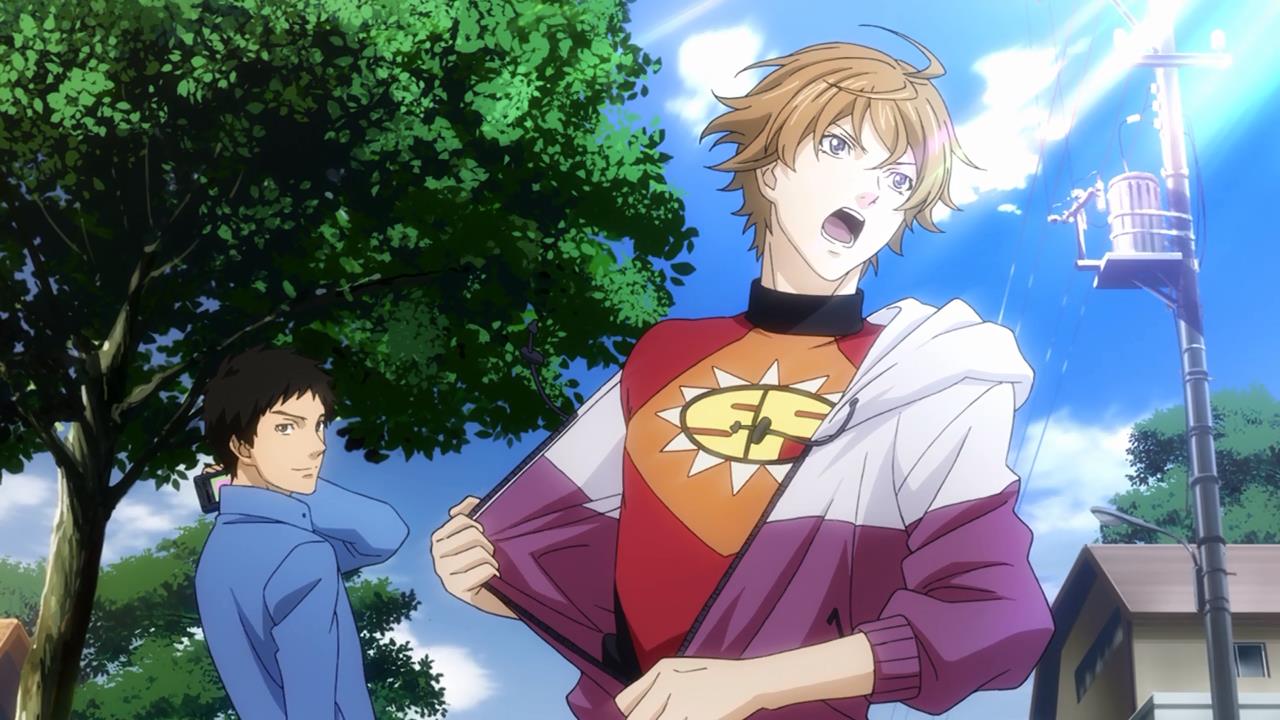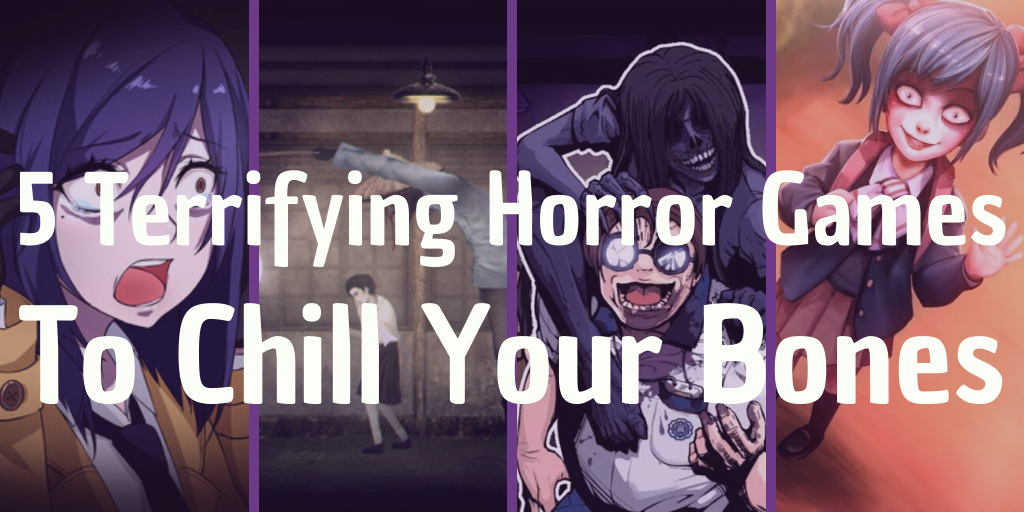Hey Hey Heroes, Travelers, and Wandering NPCs, it’s a new year and with it comes a brand new OWLS Blog Tour! What’s that you say? You don’t know about OWLS? Well, for those of you new here, OWLS or Otaku Wariors for Liberty and Self-Respect is a group of bloggers, vloggers, and writers who seek to promote acceptance and equality through thoughtful community activism, with an otaku twist! Each month we decide on a theme and each member writes a post or records a video, on that theme through the lens of something from pop culture. We have been known to cover a wide range of topics, from anime and manga to video games and film, most subject matter is up for discussion so long as it fits with our monthly theme. This month’s theme is Revival!
A new year implies “new beginnings.” Yet, rather than discussing the “new,” we will be discussing the “revival.” “Revival” has multiple definitions, but the meaning we will be focusing on is the improvement, development, or refinement of something. Our posts will be about characters that undergo a positive or negative transformation and what we can learn from them.
I’m just one in a long line of Blog Tour stops this month, and I highly recommend checking them all out when you have the time. Just before me was Hazelyn from over at Archi-Anime, with her phenomenal post about Barakaman.
For this month’s tour I decided to go with Manglobe Studio’s Samurai Flamenco, by looking at the “lack” of character development of the protagonist Masayoshi Hazama and what that says about our reliance on change as a measure of the quality of one’s life.
Character Development Doesn’t Always Mean Change
When we think of characters in our favorite media, we typically consider a few factors, their journey, their personality/characterization, and their development over the course of the series. While the middle bits are important, we as viewers tend to focus two points in a character’s journey: the beginning and the end. While the character’s personality/characterization is used as a scale to measure whether or not said character has been changed in some way by his or her journey (ie. between points A and B of the story); their development as a character. But, often times we assume that character development means growth. If a character fails to change in any remarkable way, either for the better or in some cases, worse, we determine that there was no character development. But, who determines when a change has occurred? Who decides how much change is needed for a character to have undergone the appropriate level of development? What if a character is unchanged? Are his or her actions over the course of their journey negated by their utter lack of overall development?
Character development like most concepts is subjective, it’s up to the individual viewer to determine whether a character has undergone some sort of change or in the case of some characters, no change at all. We write them off as the product of poor execution or writing, yet we can learn from these seemingly unchanged individuals, rather than seeing their lack of broad strokes development as a detriment, the focus shouldn’t be so much on the changes themselves, but more so on the character’s outlook on their own life as it pertains to these “changes”. Rather than trying to quantify character development in terms of absolutes (either it exists or doesn’t) we should instead look at how the character perceives the end result of their own journey. Do they see fault with their situation or are they content? Was a change even necessary to tell their story?
These are the questions we should consider when considering whether or not a character has experienced “growth”, as it is a concept that depends not so much on our own preconceived notions, but on the character’s. What may appear to be a regression or worse stagnation, might just be the natural progression of a character at that specific point in their journey.
Accept the Things I Cannot Change
This paradox is best observed in the 2013 anime series, Samurai Flamenco, in which the protagonist Masayoshi Hazama seemingly undergoes no remarkable character development over the course of the 22 episode series. You might be wondering how that could be possible, everyone goes through change, whether it be a good change or a bad one, the fact remains that it happens at some point, and yet when held up to the standard definition of character development, Masayoshi remains much the same person he was at the start of the series as he is at the end. He starts the series off as a naive young man with a strong sense of justice that desperately wants to be a hero like those he idolized as a child. So he dons a suite and takes to the streets as the masked hero, Samurai Flamenco and that’s much the same way he ends the series. Sure he undergoes some life altering changes here and there, but as a whole these events don’t alter who he is as a man and as a hero.
In shows like Naruto and more recently, My Hero Academia this adherence to one’s convictions is seen as an admirable quality and a reflection of the inner fortitude inherent in characters with “good character development”. But, why is that same conviction seen as a detriment here in Samurai Flamenco, while it is praised in other series and characters? The answer lies not with the characters reasons for starting out on their journey, but instead with the result. In Naruto and My Hero Academia, their protagonists undergo some sort of change, whether it is becoming a stronger shinobi or being a hero people can be proud of, there is a clear turning point in the story, where viewers can see where these characters cease being who they were at point A and begin transitioning into the person they were meant to be, in the finale… their point B “ultimate form”.
But, unlike those characters, there is no turning point, there is no clear delineation between who Masayoshi was at the start and who he is at the end of the series. For many this stagnation is seen as an affront to the traditional hero narrative, because there simply isn’t a payoff for any of the buildup. After fighting supernatural villains, defending Japan from intergalactic foes, and even reshaping the very fabric of reality, Masayoshi doesn’t become a better or stronger character, in fact one could argue that he regresses, he’s the same idealistic dreamer he was at the beginning, when his biggest obstacle was tracking down an umbrella thief. It’s a slap in the face to viewers that wanted to see Masayoshi change. So the lack of that change was seen as an oversight, simply because it didn’t fit in with their preconceived notion of how a character should progress after having gone through such a “life altering” journey. Yet, how does Masayoshi fare at the end of the series? Where is he at that point in his story?
Making a Case for Stagnation
I’ve said that Masayoshi doesn’t change much over the course of the series, and while that is true in a broad strokes sort of way, the reality is that Masayoshi does in fact undergo a change. However, when compared with his journey and the events that shape it, his “growth” pales in comparison. Sure he defeats all the villains and saves the day, but what does he gain as a character? Fame? He already had that. Fortune? He already had that too. Notoriety? He never wanted that. So, what is it that he gains by becoming a superhero? Purpose. Whether he is taking down jaywalkers or old ladies that put their trash out too early or taking on a mutated gorilla, Masayoshi, does what he does, because it’s what he believes a hero should do and he takes joy in that fact.
He doesn’t need to change to perform his duties as Samurai Flamenco because he doesn’t have to, for him a hero’s journey is a singular path; there is right and wrong with little to no variability. It’s a rather simplistic way of viewing the world, in absolutes, but it’s the same way viewers have come to scrutinize the characterization of characters in the media. We impose our own ideals on the characters we see, trying to discern their truth by substituting our own preconceived notion of how the world is supposed to function. Just like it isn’t for us to judge others for their choices (granted that they don’t directly hinder another person’s ability to live their own lives), why then do we hold these fictional characters to the same level of scrutiny?
Perhaps their happiness isn’t derived from some drastic change or action, what if it’s just the satisfaction of knowing that they are making a difference in their own way. When you look at Masayoshi’s character development through that lens, you see that what many saw as a poorly developed character with selfish motivations and zero character development, is really a reflection of our own ideals. Masayoshi’s truth is very different, for him, as long as he is upholding justice and staying true to himself, he is living his best life and isn’t that what really matters?
Conclusion: Walking in Your Truth
Far too often we qualify the progress of others based on our own thoughts and experiences, but the truth of the matter is that the only person who can determine the quality of one’s journey is that person. When I first read this month’s prompt, I initially planned on writing about Naruto and focusing on his journey from social pariah to a man beloved by all and while I’m not demeaning his journey in anyway, it’s a phenomenal example of this month’s theme of revival. However, the more I wrote, the more I realized just how cookie cutter the whole thing was and if you’ve read my previous OWLS posts, you’ll know I like to put my own spin on these posts and this time was no different. Rather than looking at a positive or a negative transition, I instead shot for that wonderful grey area, no change, well, perhaps no change is a bit of an overstatement…

What I meant to say is that, there are always three sides to any argument, your side, my side, and the truth. With this post, I urge you to understand that your truth is not necessarily some one else’s and therefore can’t be quantified using the same judgments we use to measure the quality of our own. Revival, refinement, transformation, change, these are subjective concepts that we define for ourselves. I really love Samurai Flamenco because it never does what you think it should, whether that is for better or worse is up for debate… But, despite it’s… “questionable” artistic choices, it challenges us to define our own truths and in turn elicit change in our own way.
Right, so that’s all I have to say about that, there are still a ton of blog tour stops left in the January 2018 Tour, next up is Mel from Mel in Animeland so definitely be on the look out for that posts on the 17th!! Also if you haven’t already, please subscribe to the Official OWLS Twitter account @OWLSbloggers and the Official OWLS Blog, to stay up to date on all OWLS news and announcements!
If you are interested in becoming a member of the OWLS team, please feel free to fill out the contact form, HERE! So don’t be afraid to reach out to any of us on our blogs, on twitter, or at the contact page to learn more about us!! You just need an open mind and a willingness to have fun! Catch you guys on the flipside!












Very nicely said and an interesting look at the theme of revival.
It’s something you see returning in so many posts: there is not much character development, or the character of (insert name) changes a lot. I have to admit that one of the things I like the most in either movies, anime or books are strong characters that you develop attachments too. That doesn’t always mean that they have to take on a lot of changes. And sometimes a character changes so much, that they lose the qualities that you liked them for in the first place.
I agree with Karandi: this was great! Thanks for this wonderful post! 😊
Ohh, Naja, I like what you did with your take on this month’s theme! Well written as always, and giving another perspective on things. Great post! 🙂
Interesting post. Instead of having a character go through development, he remains the same. I find it really unique because it shows that sometimes you don’t need to change because the way you are is just right. Excellent writing! 🙂
This different take or reverse topic on the OWLS monthly theme reminds me of my Diplomacy post with Blade Runner. As such, I can definitely relate to what you were going for here, and you did an really great job with it. 😉
This notion of “change” definitely didn’t occur to me when I wrote my own post for this month, and it was interesting to see just how apparent it becomes with a true “revival.” You’re right when you say that not changing is a slap in the face for the genre, and I’m glad you didn’t go with Naruto as a result (I’ve also no intention of watching Naruto, but this show sounds like a MUST now).
Again, loved the post and the neat direction you took—maybe for this year’s resolutions, “change” won’t be on my list so much as just staying the same humble person who I’d like to think I am!
This was a really good and thought provoking post. I’ve never really looked at it that way, and am one of those that looks down on “stagnant character development”. But this is a very interesting way of looking at things, and I love that you brought it to attention.
I enjoyed Samurai Flamenco up until the part where the story took a drastic change, where I stopped watching (I just couldn’t understand what the heck was happening anymore lol). But now I kinda want to try picking it up again.
This is such a cool spin on this month’s topic, and it rings so much truth. You said he doesn’t feel like changimg because he doesn’t need to. It’s hard for a lot of people to have that mindset, I think, and they get caught up in the idea that change is better. Even when it won’t help anything. Especially in the topic of the New Year, where everyone wants to change themselves. This was a great and unique post!
Great post! Character stagnation is an interesting part of character development and growth. I’ve come across stories where characters reject change and do not grow, but I haven’t come across many arguments like yours. The idea that a character who doesn’t appear to grow is perceived that way because people expected the character to grow but growth didn’t really suit their overall needs or goals is intriguing to me.
Oh bravo on this post! Also why are there so many anime shows I’ve never seen when I swear 90% of my viewing hours are spent on anime? This defies logic! But honestly this reminds me of something I have been working on which is the ability to love and appreciate being CONTENT. I feel like that state of mind isn’t appreciated enough and instead we’re always focused on euphoria.
Exactly! Instead of expecting someone to change, being content with who you are and where you are in your life can be just as great as having “success”.
Also, you’ve got me really curious about this new post of yours! Let me know when it’s live!
Will do!